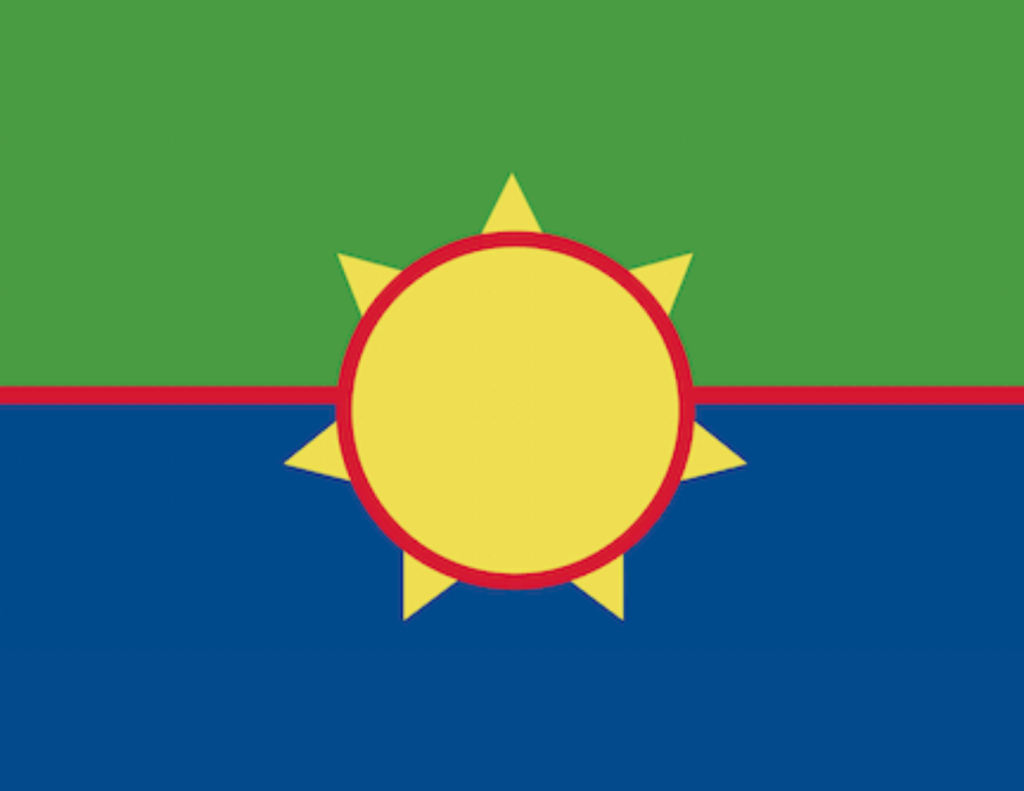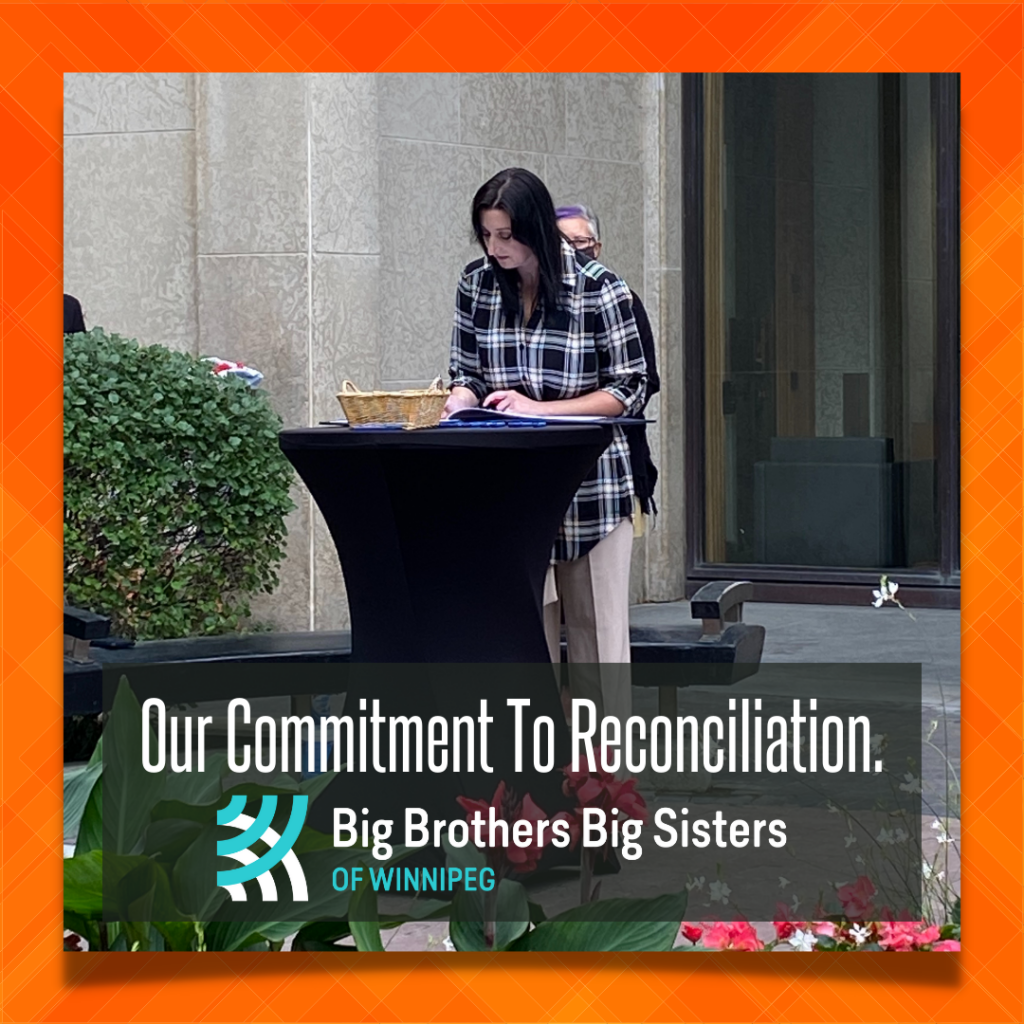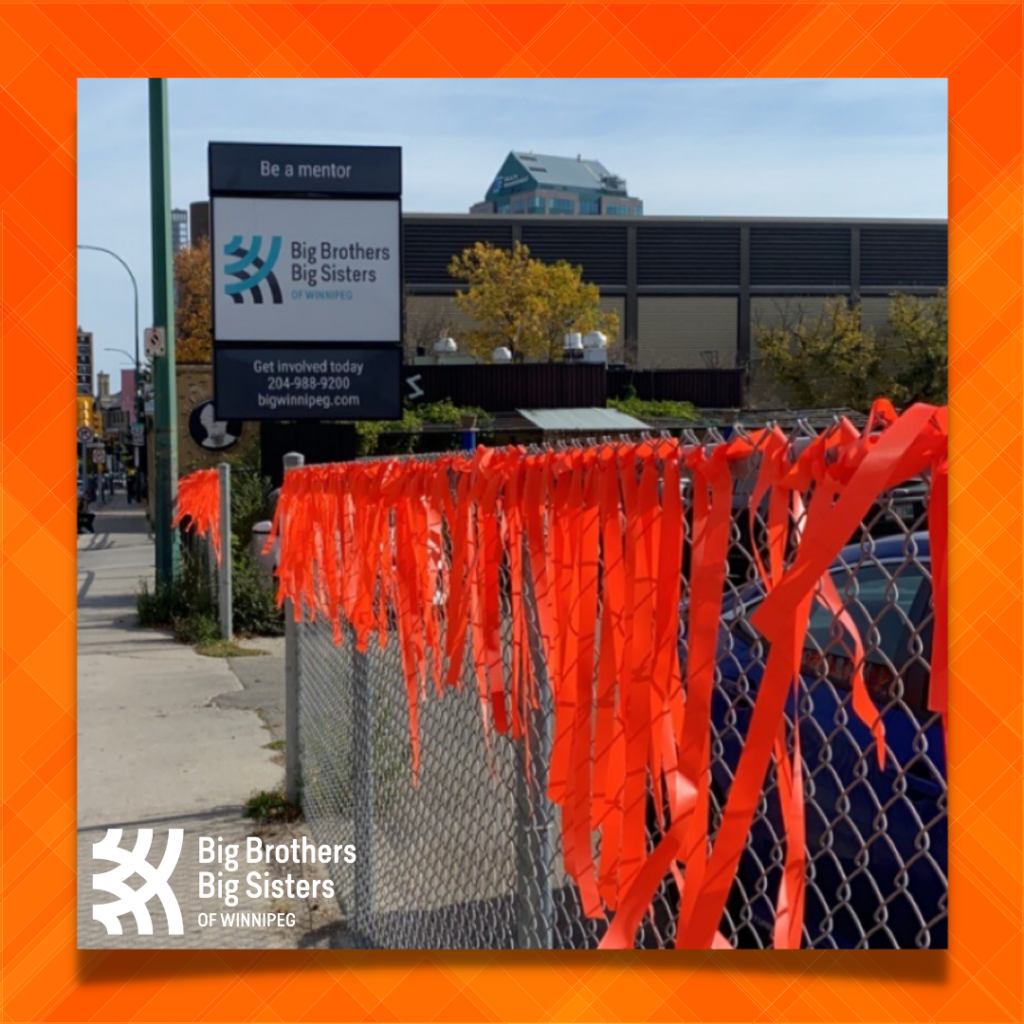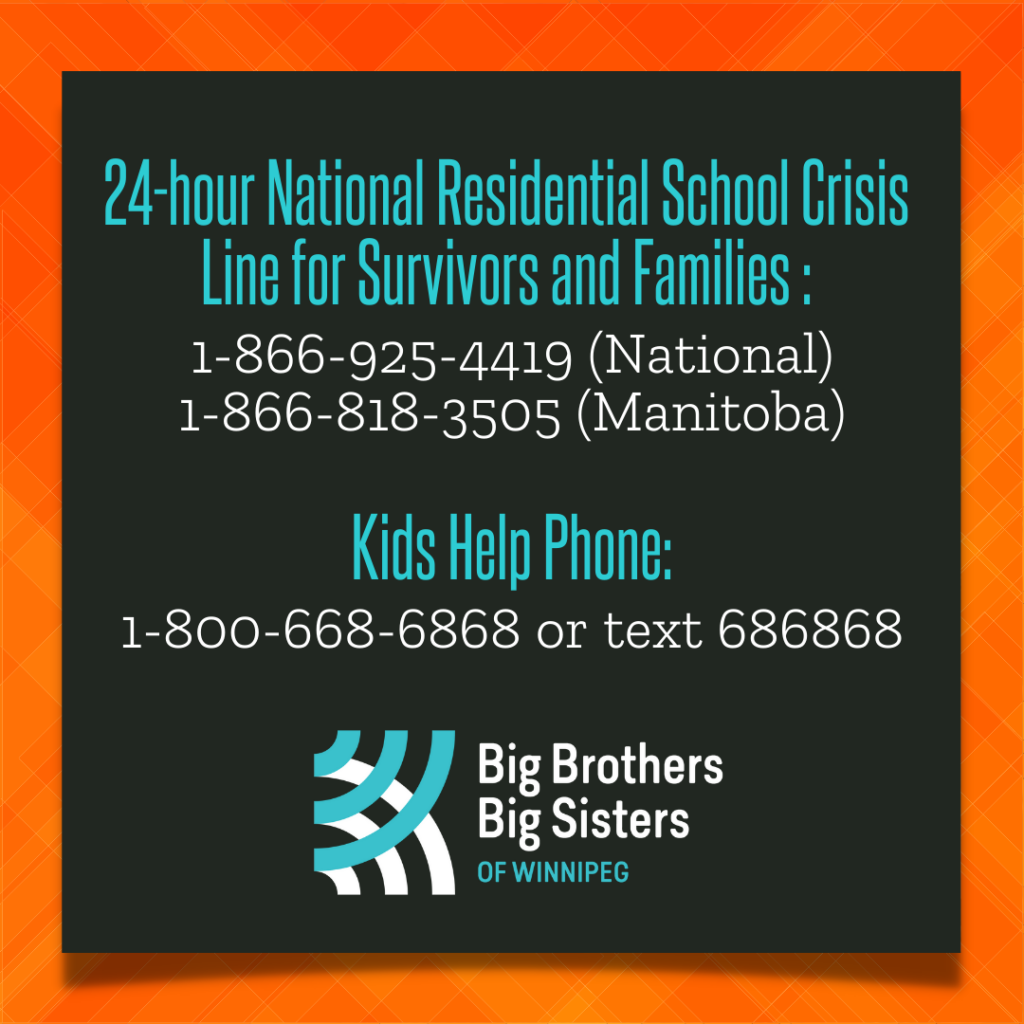Land & Water Acknowledgement
Big Brothers Big Sisters of Winnipeg operates on Treaty No. 1 Territory, the traditional lands of the Anishinaabe, Cree, Oji-Cree, Dakota, and Dene peoples; as well as the National Homeland of the Red River Métis Nation. We further acknowledge the water of which we drink comes from Shoal Lake 40 First Nation.
We respect the Treaties formed on these territories, and acknowledge that We Are All Treaty People. We recognize the long-term effects of colonization and the harmful legacy of the residential schools endured by Indigenous peoples. We commit to making space for Indigenous voices, to celebrate Indigenous culture, and to honour Indigenous heritage. We are Bigger together and we will work in partnership with Indigenous communities toward justice, equity, and reconciliation.


Big Brothers Big Sisters of Winnipeg & Reconciliation
Our hearts continue to be heavy with the recent tragic news of lives lost to the residential school system across Canada. It is crucial for us all to continue acknowledging the trauma, while learning and acting on the Truth and Reconciliation Commission’s Calls to Action and honouring the children, victims, survivors and families by working to stop the injustices today.
To every survivor of residential schools, their families, and everyone impacted, our hearts are with you. Canada’s colonial systems, discriminatory practices, and racism against First Nation, Métis & Inuit people doesn’t simply exist in the past. We acknowledge that these historical and present-day injustices affect the communities, and the lives of children, youth and families we serve. There can be no reconciliation without first speaking truth to our history.
On September 9th 2021, our Executive Director Jane Marion signed Winnipeg’s Indigenous Accord on behalf of Big Brothers Big Sisters of Winnipeg. We know that reconciliation will be a difficult yet important path to walk down. We have outlined some steps our organization will be taking to become a partner in reconciliation. This is only our first steps on our long journey towards reconciliation, but we commit to working in partnership with indigenous communities.
Our Commitments to Reconciliation 2021-2022
Legacy – Child Welfare | TRC Article 1 – III
Ensuring that social workers and others who conduct child-welfare investigations are properly educated and trained about the history and impacts of residential schools.
Goal: Big Brothers Big Sisters of Winnipeg in an effort to create greater understanding and enhance communications between Indigenous and non-Indigenous peoples, commits to have all our Case Workers and Senior Leadership participate in Indigenous cultural and sensibility training.
Rationale: By providing Indigenous cultural and sensibility training to Big Brothers Big Sisters of Winnipeg Case Workers and Senior Leadership, our team will have a better understanding of the struggles Indigenous communities face and how we can best act as a partner in reconciliation.
Business and Reconciliation | TRC Article 92 – I, II, & I
We call upon the corporate sector in Canada to adopt the United Nations Declaration on the Rights of Indigenous Peoples as a reconciliation framework and to apply its principles, norms, and standards to corporate policy and core operational activities involving Indigenous peoples and their lands and resources. This would include, but not be limited to, the following:
- Commit to meaningful consultation, building respectful relationships, and obtaining the free, prior, and informed consent of Indigenous peoples before proceeding with economic development projects.
- Ensure that Aboriginal peoples have equitable access to jobs, training, and education opportunities in the corporate sector, and that Aboriginal communities gain long-term sustainable benefits from economic development projects.
- Provide education for management and staff on the history of Aboriginal peoples, including the history and legacy of residential schools, the United Nations Declaration on the Rights of Indigenous Peoples, Treaties and Aboriginal rights, Indigenous law, and Aboriginal–Crown relations. This will require skills based training in intercultural competency, conflict resolution, human rights, and anti-racism.
Goal: Big Brothers Big Sisters of Winnipeg commits to updating our land acknowledgment.
Rationale: We see this as an opportunity to take a step further than a simple acknowledgment of land; we will acknowledge the water we drink and the historical adversities faced by Indigenous peoples. Furthermore, we will make a commitment to Indigenous communities to act as a partner in reconciliation, to respect treaties between Indigenous and colonizing people, and to celebrate Indigenous culture and heritage.
Goal: Big Brothers Big Sisters of Winnipeg commits to include indigenous voices in the development of our strategic planning process taking place in the fall of 2021.
Rationale: We will consult with Indigenous youth and volunteers within existing Big Brothers Big Sisters of Winnipeg programming as well as seeking input from Indigenous led partner organizations within Winnipeg’s United Mentoring Network. By including Indigenous voices and perspectives in our strategic planning process, we will have a better understanding of current needs and how best our programs can serve Indigenous peoples.
Goal: Big Brothers Big Sisters of Winnipeg, with decolonization top of mind, and in an effort to create greater understanding and enhance communications between Indigenous and non-Indigenous peoples, commits to provide access to indigenous awareness and cultural training to all non-Indigenous mentors who are matched with Indigenous youth.
Rationale: By providing Indigenous cultural and sensibility training to Big Brothers Big Sisters of Winnipeg volunteer mentors, they will have a better understanding of the struggles Indigenous communities face and how they can best act as a partner in reconciliation.



